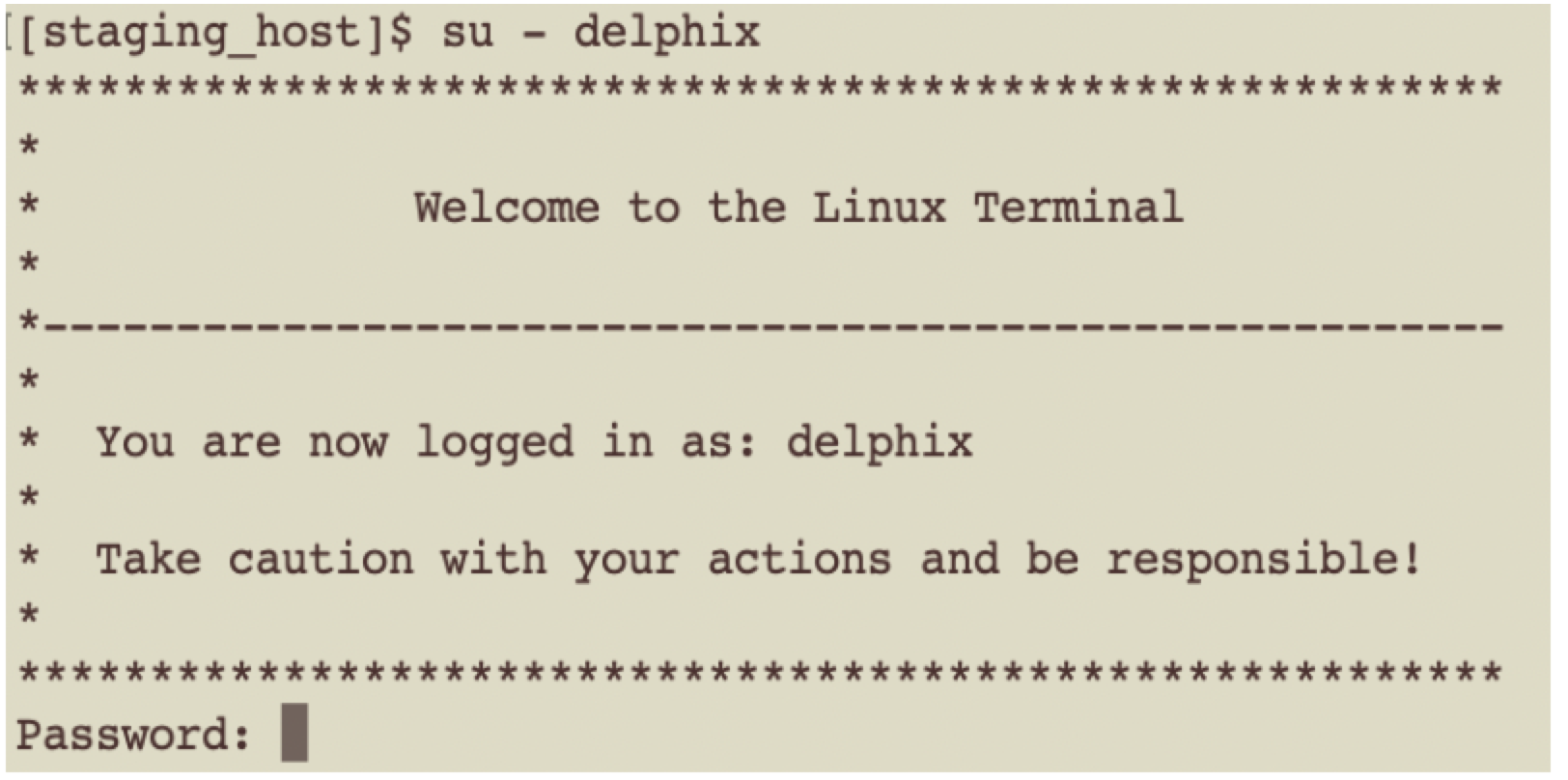Yugabyte host environment requirements
Staging/target host requirements | Explanation |
|---|---|
Host Compatibility Check The Operating System and architecture of the target host must match the source environment. | It is required that the source and the target environments should have identical OS and hardware configurations. |
There must be a directory on the staging/target host where the Yugabyte connector support files can be installed (for example,
| This path is called the “Toolkit Path” in the Environment creation UI page. |
YugabyteDB Installation and Compatibility Check There must be an installation of YugabyteDB on the target host that is compatible with the installation of YugabyteDB on the source host. | The YugabyteDB binary version on the target must be identical to the source side. |
There must be a mount point directory (for example,
| |
Hostname and IP must be correctly set in | The output of the hostname -i command should produce the correct result as the IP address of the server. For example:
CODE
|
Required Utilities and Tools Ensure the expect utility is installed on the target host. | YugabyteDB connector runs password sensitive commands by making use of expect utility. Checking if the expect utility is installed with:
CODE
|
Ensure the aws-cli utility is installed on the staging host. (Mandatory only in case of Dsource type: aws_s3) | YugabyteDB Connector runs aws-cli commands to list and copy backups from AWS S3 buckets. Checking if the aws-cli utility is installed with:
CODE
|
Storage Requirement |
|
Tuning (Optional) | Follow the directions here for your host’s Operating System. |
Sudo privileges for the environment OS user
The Delphix Continuous Data Engine connects to the target host (via SSH) to majorly perform the following operations:
Delphix Continuous Data Engine dynamically mounts and unmounts directories for linking and provisioning operations. This privilege is required because mount and unmount are typically reserved for superusers.
Delphix Continuous Data Engine dynamically creates and removes directories for linking and provisioning operations.
The operations (1) and (2) will require sudo privileges for the OS user.
Configuring sudo access on target environments (as root user):
The sudo configuration exists in the
/etc/sudoersfile. The file can be edited directly or a utility calledvisudocan be used to add the privilege.CODEvi /etc/sudoers # Or visudoAdding the privileges
CODEDefaults:delphix_os !requiretty delphix_os ALL=NOPASSWD: /bin/mount,/bin/umount,/bin/mkdir,/bin/rmdir, /bin/ps delphix_os ALL=(Yugabyte) NOPASSWD: ALL
The following examples are for illustrative purposes and the sudo file configuration options are subject to change.
Requiretty settings
Delphix Continuous Data Engine requires that the requiretty setting be disabled for all the Delphix Continuous Data Engine users with sudo privileges.
It is required to specify the NOPASSWD qualifier within the "sudo" configuration file. This ensures that the "sudo" command does not demand the entry of a password, even for the "display permissions" (i.e. "sudo -l") command.
Additionally, Delphix OS user should be,
Regular o/s user - e.g., delphix_os.
Add OS user to Yugabyte OS group.
Must have access to backup files of the source database stored on the staging host.
Must have access to the path
createand modify files in/opt/yugabyte/var/lib/yugabyte.Empty folder on host to hold Delphix toolkit (approximate 2GB free space).
Empty folder on host to mount NFS filesystem. This is just an empty folder with no space requirements and acts as a base folder for NFS mounts.
Sudo privileges for mount and umount. See the sample below assuming
delphix_osis used as a Delphix user.
Ensure any login banners similar to the one in the image below must be disabled on the staging host.

